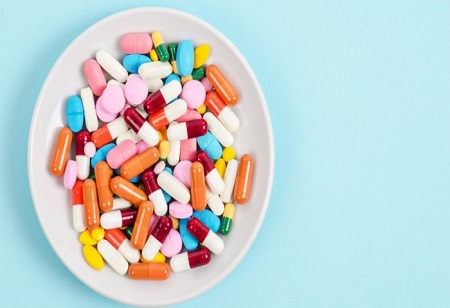Janifha Evangeline | Saturday, 09 July 2022

According to a recent report, the generic drugs market is predicted to reach USD 675 billion by 2030. Generic drugs are manufactured utilizing the same active ingredients as branded drugs. They also provide an equal therapeutic effect. Furthermore, when it comes to the dosage, safety, strength, intended use, quality, and side effects. The demand for generic drugs is growing globally & pharmaceutical enterprises are realizing the great potential this opportunity affords.
Also, efficient & inexpensive drugs are always needed, making this a proliferating market for drug makers. “India is the largest provider of affordable and low-cost generic drug products to millions of people around the world. It also operates a significant number of United States Food and Drug Administration (USFDA), World Health Organization (WHO), and Good Manufacturing Practices (GMP) compliant manufacturing units,” says Dr. Muthulingam C, VP, Mankind Pharma Limited. Generic drugs need less R&D when compared to their brand-name counterparts.
As a consequence, Artificial Intelligence applications for R&D don’t seem to be the most prominent solutions for generic drug companies. Despite the lack of precedence, there would be multiple areas in which Artificial Intelligence could help generic drug enterprises. Generic drug companies can use Artificial Intelligence to achieve the following Finding drug biosimilars: predictive analytics & NLP for searching through databases of brand name drug enterprises to find similar compounds scientists can leverage to develop generic drugs.
Researching Drug Companies crystal structures: predictive analytics to determine how the shapes of compounds will react to a certain method of manufacturing & other drug development processes.
Salt & polymorph screening: ML can be leveraged for finding the solubility of a compound to ensure that it maintains its effectiveness over time. Let us begin our exploration of Artificial Intelligence for generic drug companies with how predictive analytics might help generic companies find biosimilars Finding Drug Biosimilars Preprocessing pharmaceutical data for AI Generic drug companies can leverage Artificial Intelligence for finding alternatives to brand-name drugs which are also known as biosimilars.
These firms have a large database of current drug & chemical data, however, may require to be processed & labelled prior it can be run through an ML algorithm.
While Generic drugs require to have similar contents to their brand-name counterparts, their reactions to manufacturing the shapes of their crystal structures, data on these drugs may be labeled as per their solubility, & other data points that an algorithm would use to correlate the drug to brand-name counterparts. Image data from advanced microscopes have to be labeled electronically on the basis of what the firm intends the Artificial Intelligence algorithm to search for within those images. For example, microscopic images of drug compounds that form a crystalline structure may require to be labelled as per the molecule's bind & the shape of its structure.
Natural Language Processing-based drug discovery A pharmaceutical scientist could search for a brand-name drug compound within the Artificial Intelligence software, and the software would return biosimilars. He could use these biosimilars for manufacturing a generic drug. Natural language processing-based drug discovery applications for example are implemented for sifting through huge amounts of clinical trial notes/electronic medical records, typically. The application may then render the user with the entire data the firm has related to a given chemical compound. And this could help generic drug enterprises reduce their known compounds to sort the most effective biosimilar of a particular brand-name drug.
BioSymetrics renders services for data organization, labeling as well as cleaning to biomedical & healthcare organizations. This data may comprise geolocational stats, images, and streaming data, as well as the traits of compounds that were discovered previously. The firm’s ML platform, Augusta can purposely recognize medical imaging from data from MRIs as well as numerical data from EKG scans. It can extract information from EMRs. Augusta uses predictive analytics for determining whether drug compounds will bind, among other use-cases which could help generic drug firms find whether the biosimilars that are being discovered could be combined to develop a generic drug. Salt &
Polymorph screening When selecting/choosing a suitable biosimilar for a new product, generics firms would want to find out information about the drug’s solubility. And, this information is obtained from data related to how the drug’s crystalline structure breaks down when it is immersed in a solvent like water when ingested.
Xtalpi claims to provide software, which has the capability to analyze molecules & search for crystal structures within its database. This can facilitate in determining the most important factors of generic drugs such as how the active compound in the original drug reacts to being processed and manufactured differently. Also, these types of applications could show the solubility of the drug & whether the compound stays effective when dissolved.
The road ahead With regards to the pharmaceutical industry, it is inferred that generic drugs would make use of applied Artificial Intelligence technology largely while working with AI startups. Furthermore, they likely will not witness Artificial Intelligence solutions developed in-house unless numerous name-brand organizations have their own proprietary Artificial Intelligence platforms & business infrastructure.